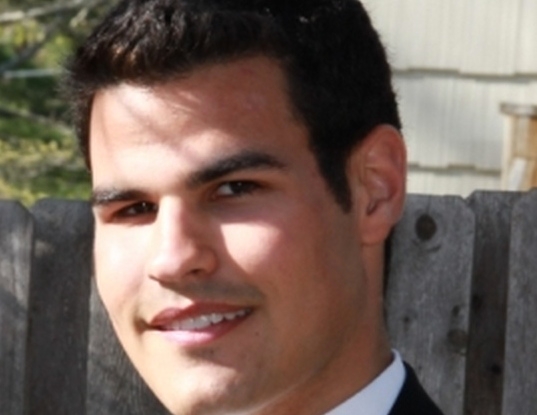
Zach Certner: “Seeing the smiles on the kids’ faces when you give them that trophy at the end of the year keeps me motivated.” (Courtesy of Zach Certner)
The Teen Heroes column is sponsored by the Helen Diller Family Foundation. To learn more about the foundation’s $36,000 Diller Teen Tikkun Olam Awards, visit http://dillerteenawards.org.
(JTA)— Zach Certner was 9 when he recognized the despair of a family friend who was excluded from participating in the sports activities that Certner enjoyed so much.
Mikey had a developmental disability, Certner said, “and I saw the struggles that he experienced by not doing what we could do or play on the same teams.”
Certner and his older brother, Matt, decided to organize bimonthly soccer, basketball and baseball clinics in their hometown of Morristown, New Jersey, for children with special needs and match the children with peer mentors.
“We wanted to give kids like [Mikey] a chance to be kids,” said Certner, now 19.
What began in 2006 as a group of 10 special-needs children and 15 mentors has grown into the nonprofit SNAP (Special Needs Athletic Programs). The organization runs sports clinics, yoga, art, music, Taekwondo and tutoring five nights a week for 150 special-needs children with 450 mentors in multiple New Jersey cities.
SNAP teaches the children more than just sports skills, said Certner.
“[They] have confidence, are able to succeed, foster friendships and really feel comfortable with who they are,” he said. “It’s so powerful for everybody involved.”
Currently a freshman majoring in computer science at Duke University, Certner was awarded a Diller Teen Tikkun Olam Award in 2014 for his work with SNAP.
Recently he has taught special-needs awareness and sensitivity training to students at schools across eight states. Certner is also developing an online course to train teen mentors.
“Seeing the smiles on the kids’ faces when you give them that trophy at the end of the year keeps me motivated,” he said. “Knowing that we’re making a difference makes me feel good about what we’re doing.”
Certner spoke to JTA about the qualities he thinks are important in a hero, the inspirational educator he’d like to meet and his advice to other teens interested in starting a community service program.
JTA: What do you think are the important qualities of a hero?
Certner: I think the biggest thing is a drive to make a difference, big or small, a willingness to put yourself out there and a desire to give back and help.
Who is your hero?
My mom. She’s always been there for me and always has my back. She instilled in me a desire to give back to others at a young age. I can never thank her enough for that. It’s been an integral part of my life.
Can you share with us a meaningful Jewish experience that you’ve had?
There are 25 kids who [started working] at SNAP as a bar mitzvah project but haven’t stopped. It’s really cool to see a program that inspires kids to give back even when they don’t have to.
If you could have lunch or coffee with anyone and tell them about SNAP, who would it be?
Probably Temple Grandin [an advocate for animal rights and people with autism]. She is really inspirational. I’d like to talk to her about SNAP and her life experiences. I think it would be a great experience for both of us.
What kind of things do you like to do for fun?
I’m huge into basketball. I’m a big golfer. I hang out with my friends and watch movies.
What advice would you give to other teens interested in starting a community service program?
Go for it! Ask people for help and don’t be afraid to be uncomfortable. No matter how big or small, if [your program] makes a difference in even one person’s life, you should do it.
Please tell us about teens who deserve attention by sending an email to teens@jta.org.
JTA has documented Jewish history in real-time for over a century. Keep our journalism strong by joining us in supporting independent, award-winning reporting.






